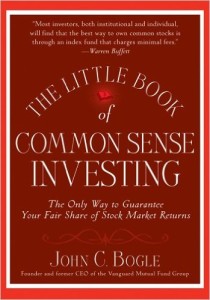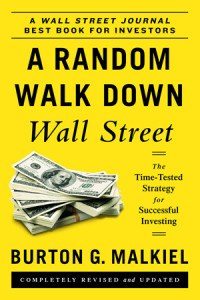One of the biggest hurdles that people face as they try to get their money in order is the lack of basic knowledge of various financial topics, from saving to investing. Thus, many people, believing that they don’t have enough information to handle their money effectively, turn to professionals. While consulting with professionals can help ensure that you are making the right moves, you can easily acquire the basics of personal finance and begin improving your situation on your own. One of the best ways to get started is to pick up a book or, better yet, several books about personal finance.
By looking through a handful of books, you can get a better idea of how professionals approach personal finance and discover the strategies that resonate with you the most. After purchasing a book, it is often helpful to flip through the chapters to get a sense of where you might want to dedicate your time rather than reading it from cover to cover.
It is important to choose the right titles. Before making a purchase, you should consider your individual situation and what you need most from a book. Borrowing a stack of books from the library can be a great, inexpensive way to figure this out before investing in a specific title.
The following are a handful of suggestions for great books to start with, but the list is far from exhaustive:
The Little Book of Common Sense Investing by John Bogle
 The founder of Vanguard Group, Bogle is largely credited for bringing index funds to the general public. Index funds remain one of the best options for new investors due to their accessibility and low costs, and those who want to get started in investments will find a lot of valuable information here. In the text, Bogle breaks down complex ideas in digestible morsels and provides advice that is straight to the point. The book is short, but it still covers a lot of information.
The founder of Vanguard Group, Bogle is largely credited for bringing index funds to the general public. Index funds remain one of the best options for new investors due to their accessibility and low costs, and those who want to get started in investments will find a lot of valuable information here. In the text, Bogle breaks down complex ideas in digestible morsels and provides advice that is straight to the point. The book is short, but it still covers a lot of information.
Risk Less and Prosper by Zvi Bodie and Rachelle Taqqu
People who have particular financial goals will enjoy this book, which focuses on creating a concrete plan with small, achievable steps to reach your goal. The book can help you define your goals and understand that they are truly achievable with a bit of planning. Bodie teaches management at Boston University and largely advocates a low-risk approach to investing that uses inflation-indexed government bonds to generate income. Stocks are scary for many novice investors, and Bodie does a great job of exploring the alternatives, as well as presenting the advantages and drawbacks of each option.
A Random Walk Down Wall Street by Burton Malkiel
 One of the classic investing texts, A Random Walk Down Wall Street is now in its 10th edition. Malkiel, a Princeton University economist, starts with an exploration of how various markets work. The book emphasizes understanding important concepts like life-cycle investing and bubbles as a foundation for making the best financial decisions. If you have anxiety about investing, you will likely appreciate the honest, and often skeptical, tone of the book.
One of the classic investing texts, A Random Walk Down Wall Street is now in its 10th edition. Malkiel, a Princeton University economist, starts with an exploration of how various markets work. The book emphasizes understanding important concepts like life-cycle investing and bubbles as a foundation for making the best financial decisions. If you have anxiety about investing, you will likely appreciate the honest, and often skeptical, tone of the book.
Rich Dad, Poor Dad by Robert Kiyosaki
This book remains one of the world’s most recommended financial books because it focuses not just on personal finances, but also on how our money management habits influence our children. Kiyosaki offers practical advice on taking control of your finances by looking at common money decisions and how they define different types of people. Throughout the book, the author emphasizes that parents’ financial decisions teach children how to manage their own money. The book challenges parents to set a healthy example for their kids and in doing so take control of their own financial future.
Think and Grow Rich by Napoleon Hill
Many people may overlook Think and Grow Rich because of its age, but it is still a popular read for many reasons. Hill wrote the book following the Great Depression, when Andrew Carnegie, then the richest man alive, hired him to interview more than 500 successful people, including Alexander Graham Bell, Henry Ford, Thomas Edison, and John D. Rockefeller. The book culminates in 13 steps to success that still resonate with modern readers and have a number of financial lessons to teach. Some people may find this book more accessible than a standard finance text because it is based on the stories of well-known figures.
The Money Book for the Young, Fabulous, and Broke by Suze Orman
Intended for recent college graduates, this book has some important lessons for people of all ages. While the book is written for those with minimal financial literacy, Orman lays out a great guide for how to set and meet financial goals. The Money Book outlines the basics of what you need to know about markets, buying a home, and dealing with credit. People of all ages can benefit from the book’s skillful breakdown and important pointers on saving and investing money.

